On 1st January 2023, Bangladesh Bank Job Circular has published. Several New vacancies are available on their job circulars. We will bring you that circular with detailed instructions. The Last Date for Application is 14th February 2023. If You Want To Know More Bank Job, Engineering Job, Govt. Job, Private Jobs, Medical Jobs, Pharmaceuticals Jobs, BGB Jobs, Army Jobs, Navy Jobs, Air Force Jobs, Police Jobs, Anser & VDP, Fire Fighter Jobs, and also Find Educational All Results ← Just Click This Highlight Links.
bank job circular 2023 Bangladesh
- Organization: Bangladesh Bank
- Company Details: To Know About Company -> Click Here
- Position :
- Officer Rural Credit (RC)
- Officer
- Senior Officer
- Total Post: 468+317+3197+2416
- Qualification: See The Circular
- Salary: See The Circular
- Deadline:20th February 2023
Bangladesh Bank
Bangladesh Bank (বাংলাদেশ ব্যাংক) is the central bank of Bangladesh and is a member of the Asian Clearing Union. The bank is active in developing green banking and financial inclusion policies and is an important member of the Alliance for Financial Inclusion. Bangladesh Financial Intelligence Unit (BFIU), a department of Bangladesh Bank, has got the membership of Egmont Group. Bangladesh Bank is the first central bank in the world to introduce a dedicated hotline (16236) for the general populace to complain about any banking-related problem. Moreover, the organization is the first central bank in the world to issue a Green Banking Policy. To acknowledge this contribution, then-governor Dr. Atiur Rahman was given the title Green Governor at the 2012 United Nations Climate Change Conference, held at the Qatar National Convention Centre in Doha. But after the death now on his remark led is on MD Unus Ali 2nd Officer Of Bangladesh Bank.
Bangladesh Bank History
On 7 April 1972, after the Independence War and the eventual independence of Bangladesh, the Government of Bangladesh passed the Bangladesh Bank Order, 1972 (P.O. No. 127 of 1972), reorganizing the Dhaka branch of the State Bank of Pakistan as Bangladesh Bank, the country's central bank and apex regulatory body for the country's monetary and financial system. The 1972 Mujib government pursued a pro-socialist agenda.
In 1972, the government decided to nationalize all banks to channel funds to the public sector and to prioritize credit to those sectors that sought to reconstruct the war-torn country – mainly industry and agriculture. However, government control of the wrong sectors prevented these banks from functioning well. This was compounded by the fact that loans were handed out to the public sector without commercial considerations; banks had a poor capital lease, provided poor customer service, and lacked all market-based monetary instruments. Because loans were given out without commercial considerations, and because they took a long time to call a non-performing loan, and once they did, recovery under the erstwhile judicial system was so expensive, loan recovery was abysmally poor. While the government made a point of intervening everywhere, it didn't set up a proper regulatory system to diagnose such problems and correct them. Hence, banking concepts like profitability and liquidity were alien to bank managers, and capital adequacy took a backseat. In 1982, the first reform program was initiated, wherein the government denationalized two of the six nationalized commercial banks and permitted private local banks to compete in the banking sector.

In 1986, a National Commission on Money, Banking and Credit was appointed to deal with the problems of the banking sector, and a number of steps were taken for the recovery targets for the nationalized commercial banks and development financial institutions and prohibiting defaulters from getting new loans. Yet the efficiency of the banking sector could not be improved. The Financial Sector Adjustment Credit (FSAC) and Financial Sector Reform Programme (FSRP) were formed in 1990, upon contracts with the World Bank. These programs sought to remove government distortions and lessen financial repression. Policies made use of the McKinnon-Shaw hypothesis, which stated that removing distortions augments efficiency in the credit market and increases competition. The policies, therefore, involved banks providing loans on a commercial basis, enhancing bank efficiency, and limiting government control to the monetary policy only. FSRP forced banks to have minimum capital adequacy, to systematically classify loans, and to implement modern computerized systems, including those that handle accounting. It forced the central bank to free up interest rates, revise financial laws and increase supervision in the credit market. The government also developed the capital market, which was also performing poorly. FSRP expired in 1996. Afterward, the Government of Bangladesh formed a Bank Reform Committee (BRC), whose recommendations were largely unaddressed by the then government. At present it has ten offices located at Motijheel, Sadarghat, Chittagong, Khulna, Bogra, Rajshahi, Sylhet, Barisal, Rangpur, and Mymensingh in Bangladesh; total manpower stood at 5807 (officials 3981, subordinate staff 1826) as of 31 March 2015.
Bangladesh bank circular
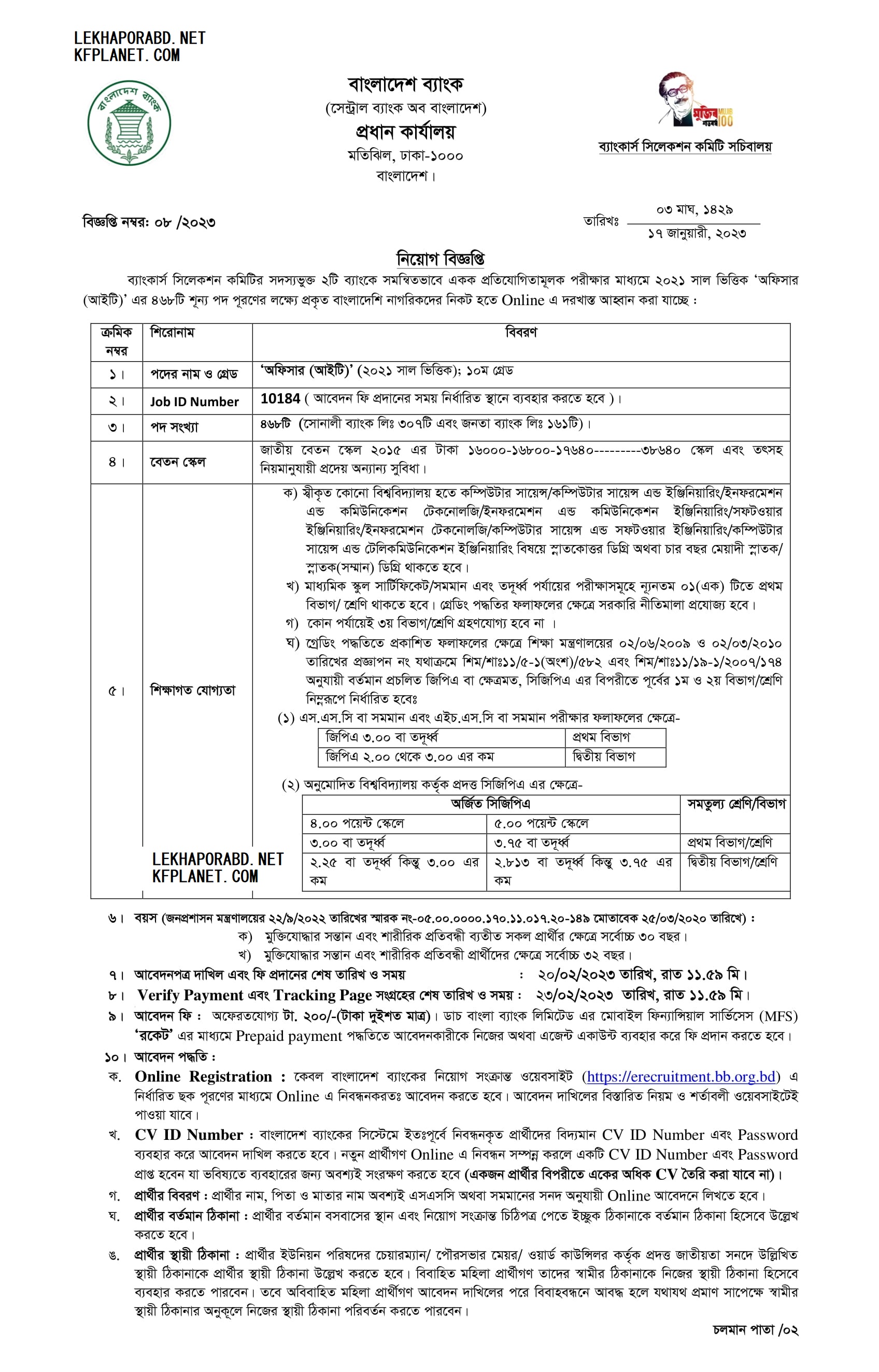
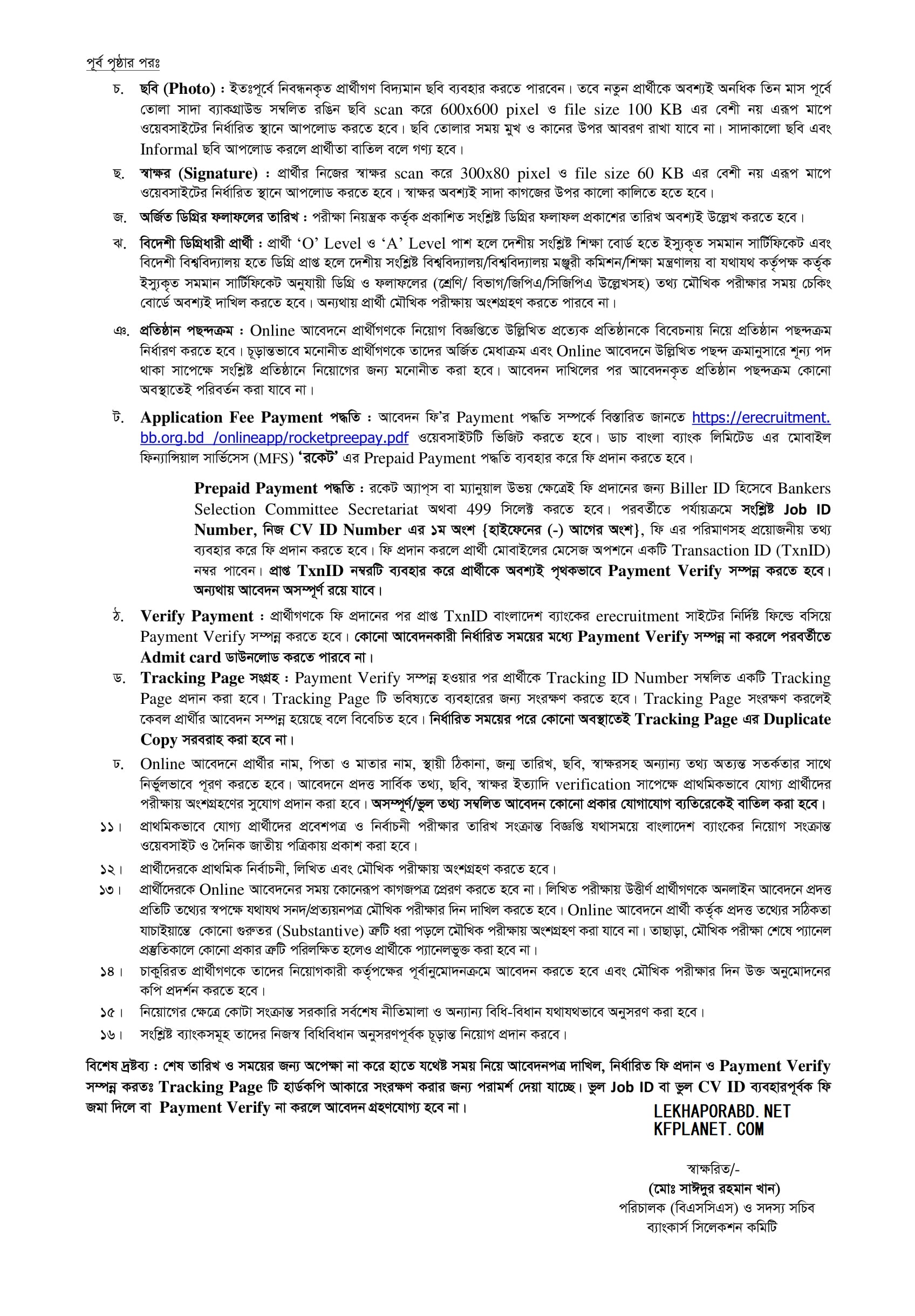
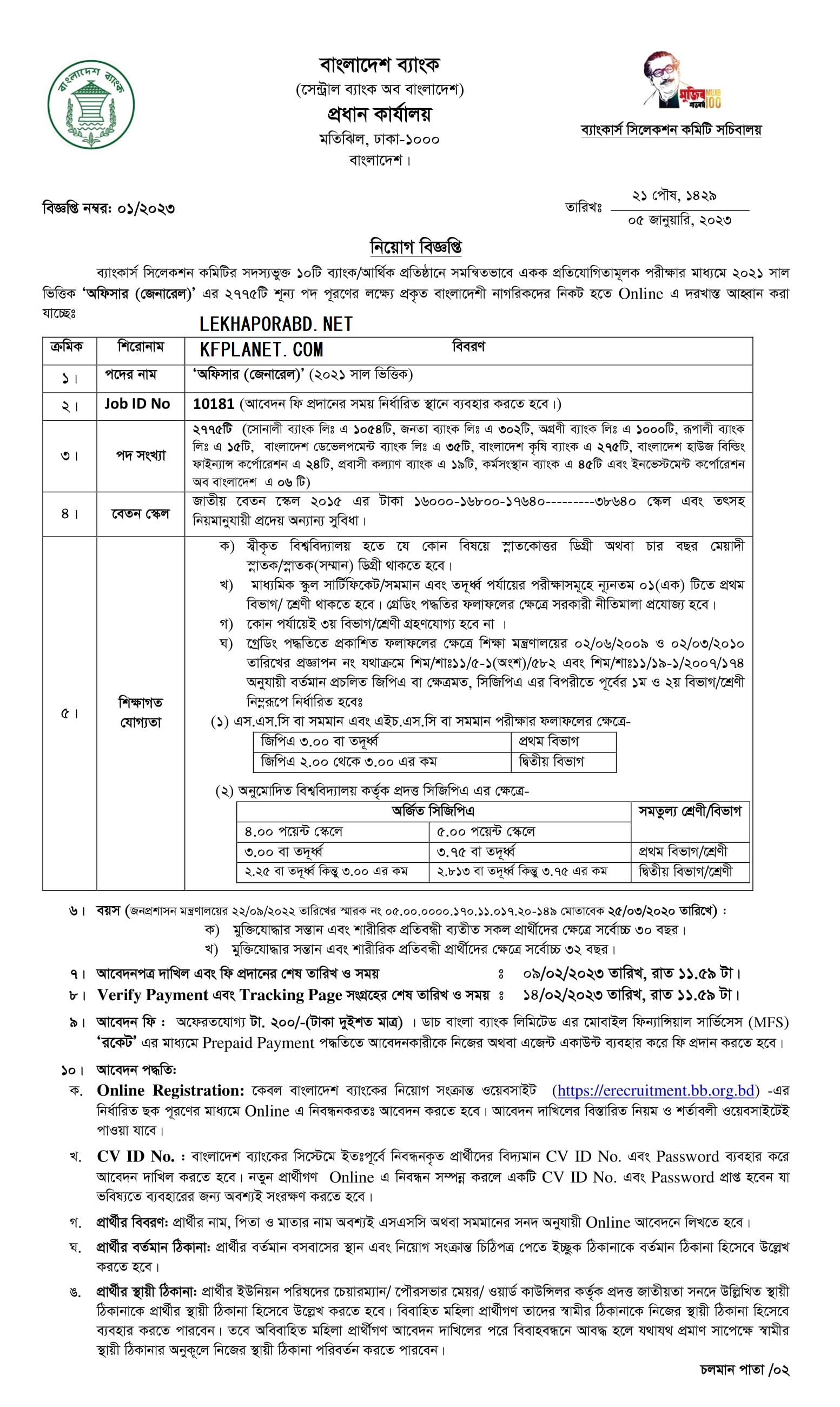
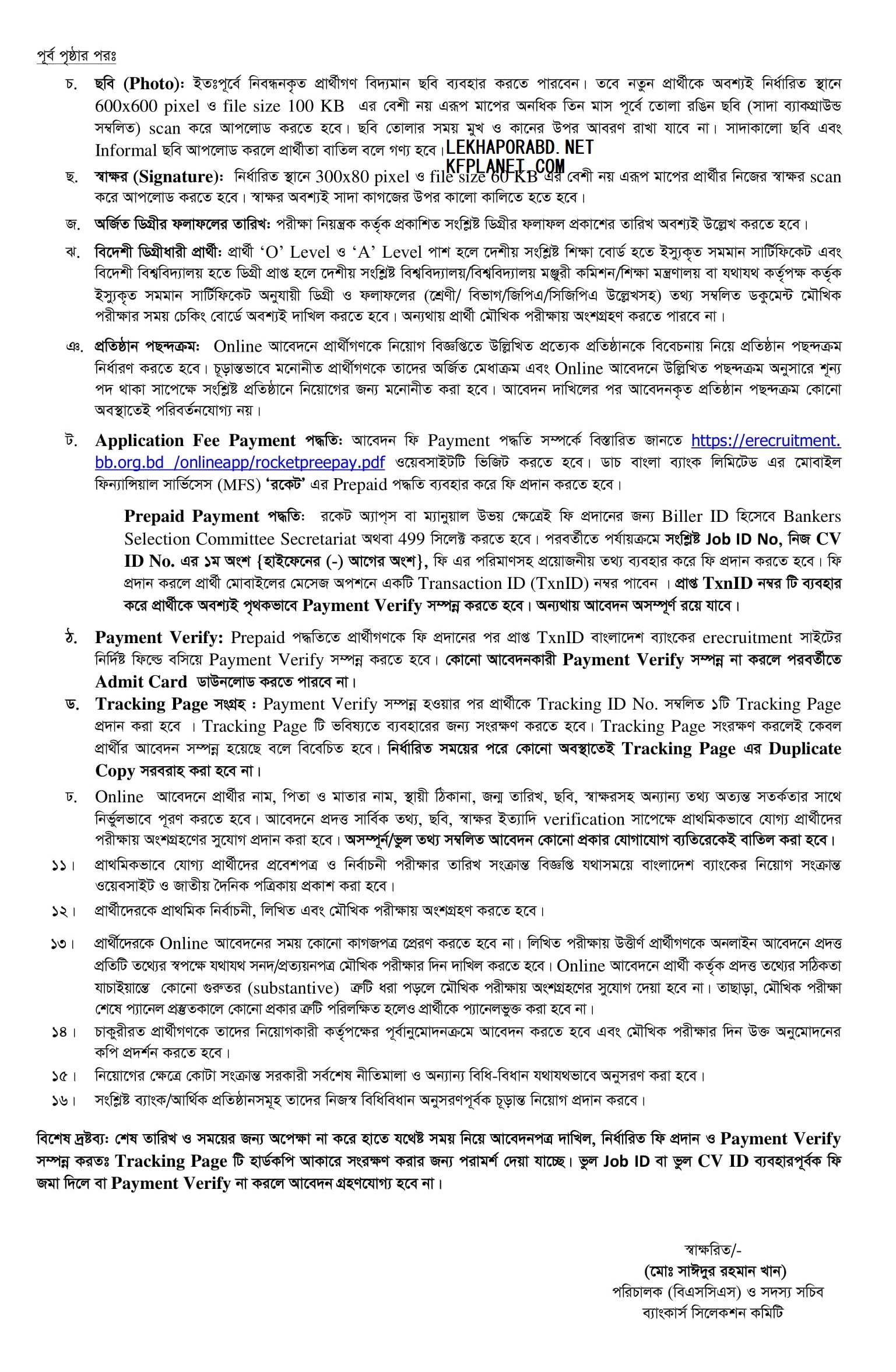
Bangladesh bank job circular officer
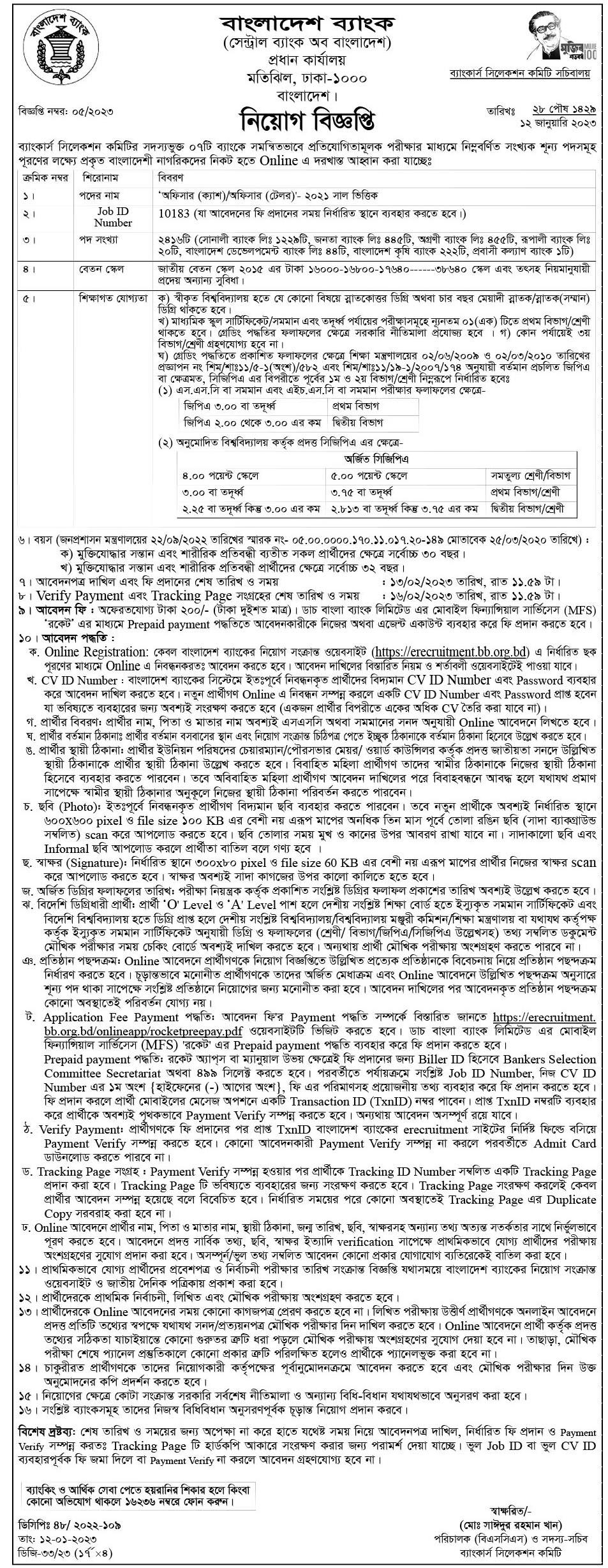
recruitment bb

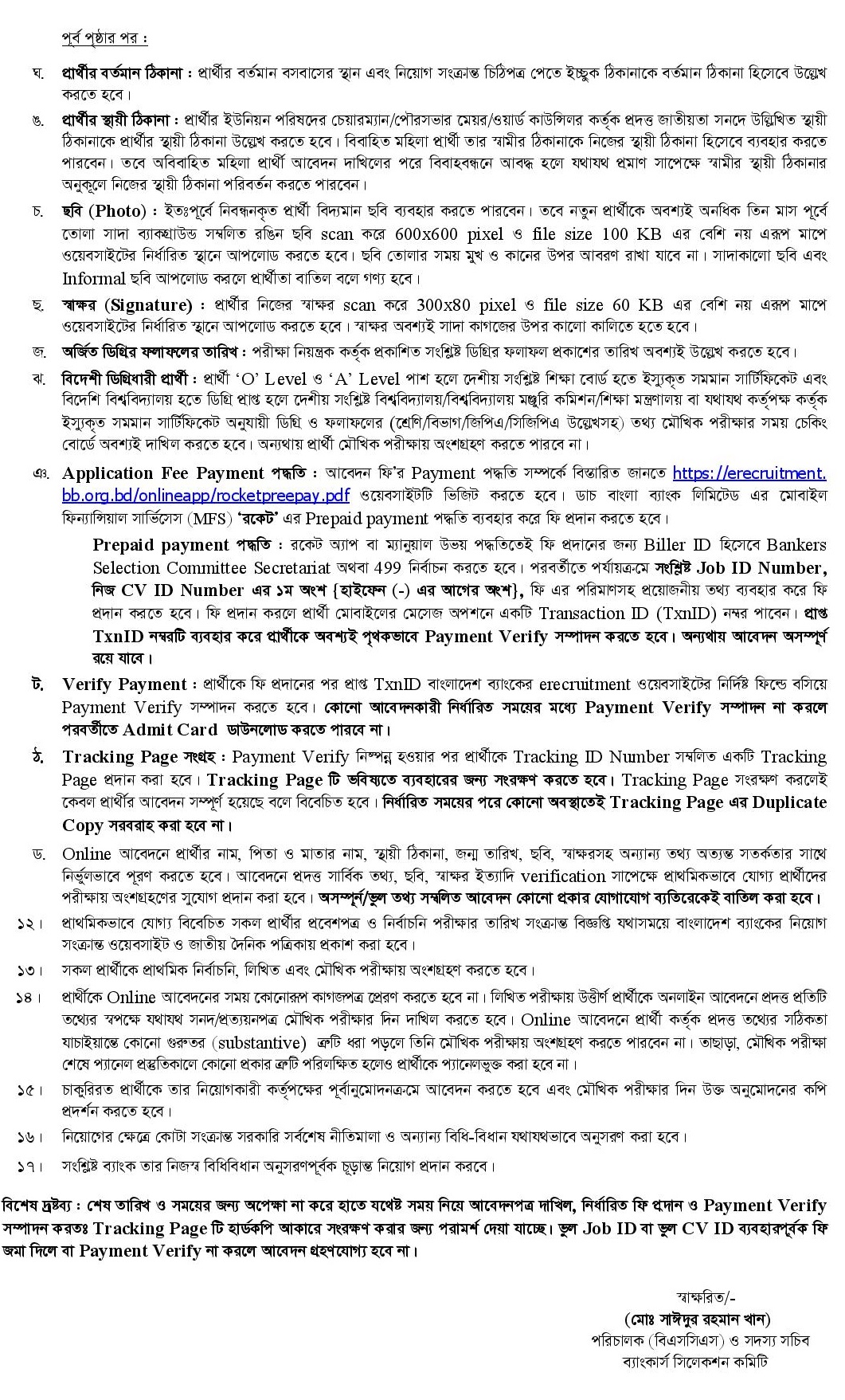
BB Circular
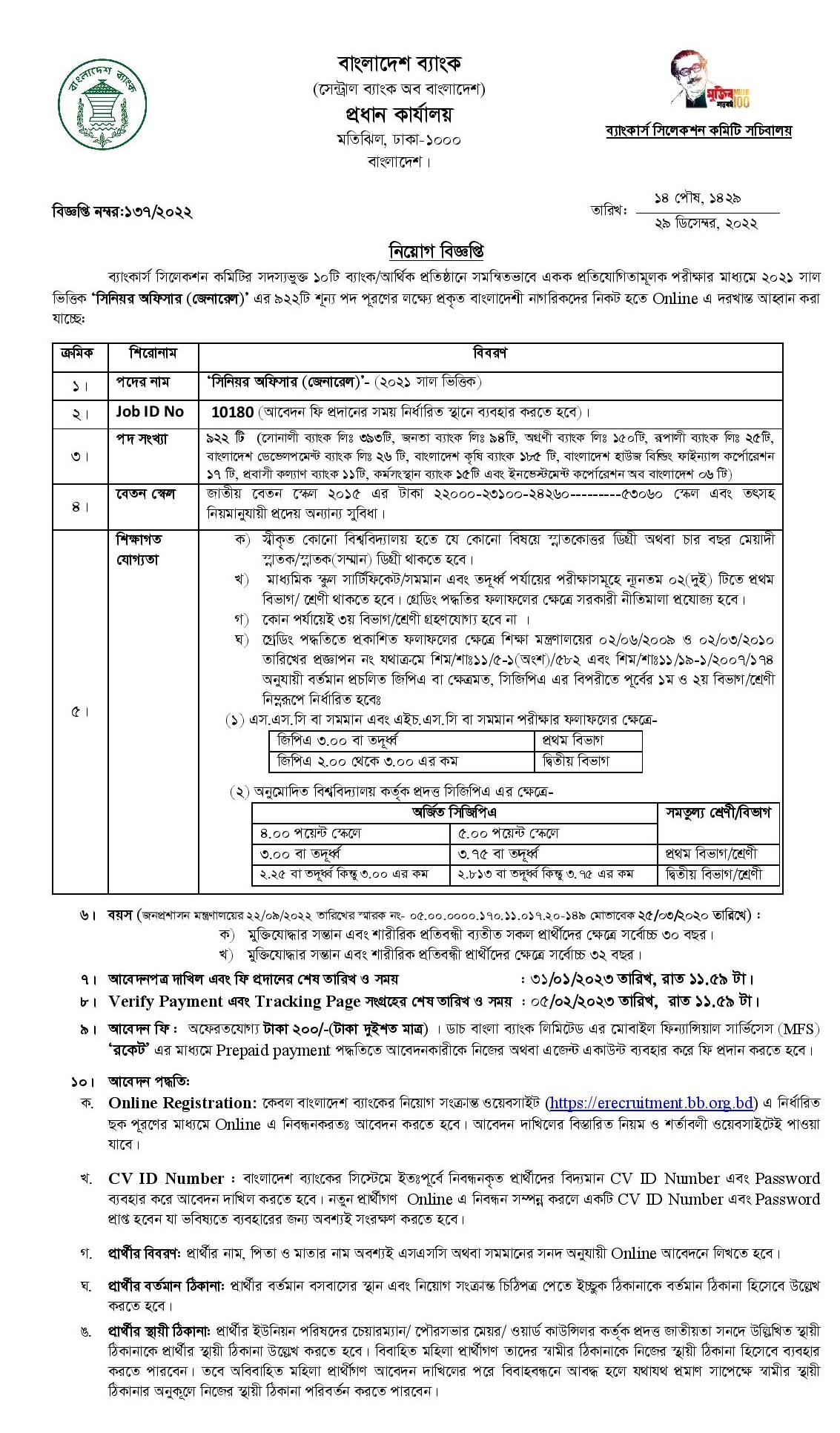
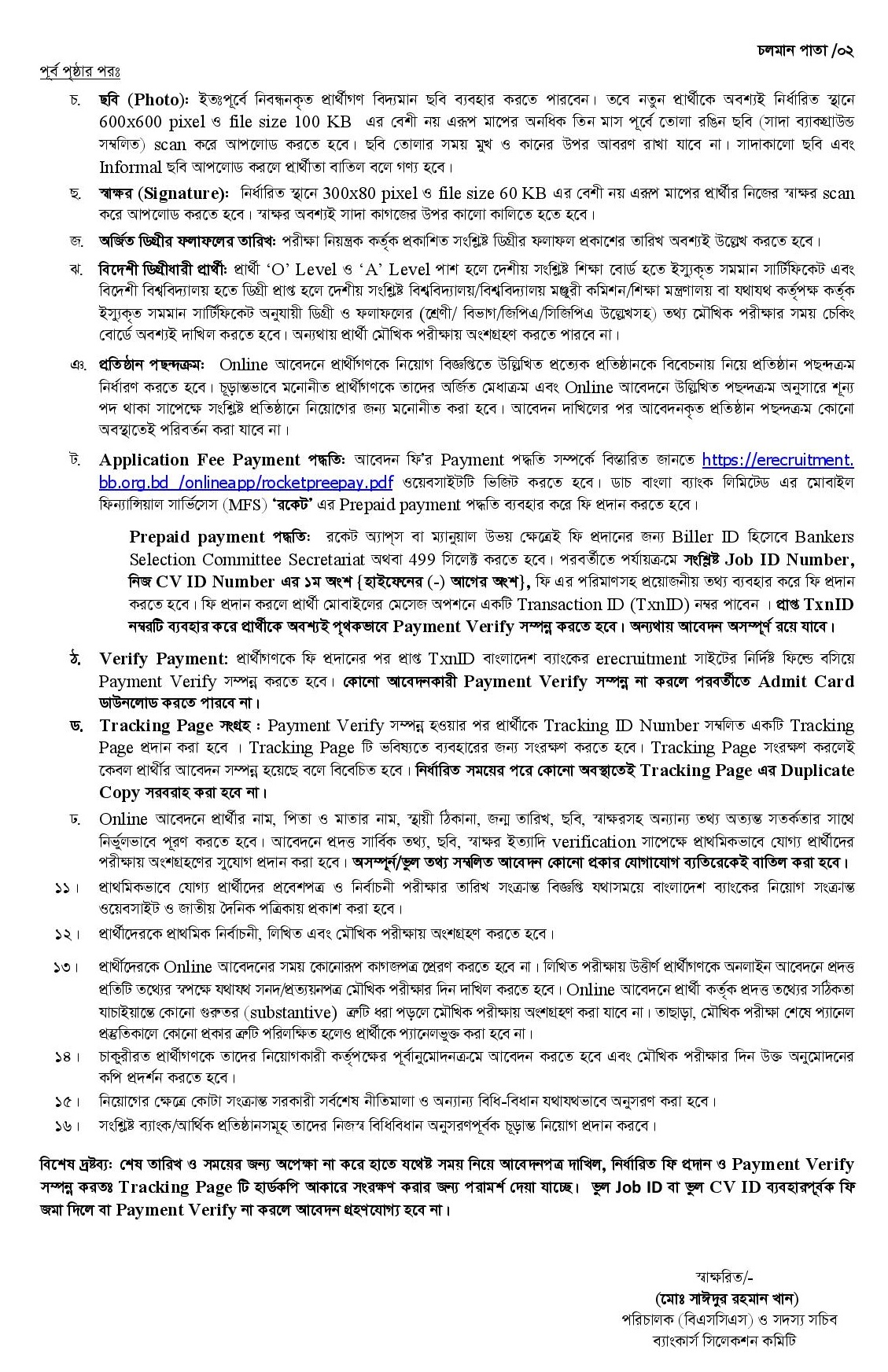
Download Bangladesh Bank Exam Admit Card And Sit Plan → Click Here
See The Bangladesh Bank Exam Results





